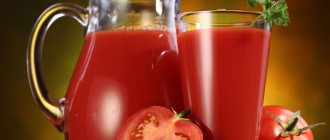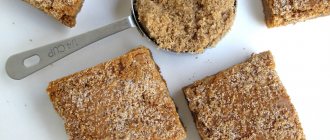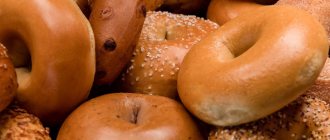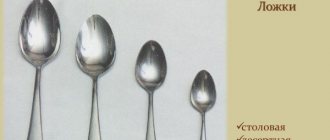Refined sugar is solid sugar that has undergone additional purification, as a result of which its composition is as close as possible to pure sucrose. The raw material for its production is granulated beet or cane sugar. The color depends on the type of raw material. When making a product from sugar beets, it will be white or with a bluish tint; from cane, it will be light brown. The taste of different types of product is practically the same. Refined sugar is offered to the consumer in the form of dispersed powder with crystals of different sizes (sand and powder), pressed layers and cubes. The main use is cooking. Additional – medical and chemical industries.
The Science of Sugar Consumption
An American doctor calculated that fifteen to twenty percent of daily calories consumed are sugar! However, you don’t necessarily always eat it in its pure form. It is quite an integral component of canned fruits.
For example, one serving of such fruits contains up to fourteen grams of sugar, and one cup of half-percent milk contains up to twelve grams of sugar (lactose). Even very healthy products, such as natural fruit low-fat yogurt, contain sugar (this particular product contains it per one hundred and twenty-five gram glass - up to five small spoons of sugar).
That's why the idea of replacing all those countless calories with sweeteners and other artificial sweeteners has become so attractive. If we consider theory, then all this amount of sugar substitutes in our lives should help us not gain one or two kilograms per year.
Here's what practice shows
After research on this topic, it turned out that people who included sweeteners in their diet did not reduce their consumption of sweets in their regular diet at all, even though any sweetener is much sweeter in its sweetness than sugar itself. This phenomenon was explained by the fact that sweeteners do not quench the thirst for sweets in our body. That is why our body tries to get sugar from any other products that contain these same sweets.
The point is that the tongue can be deceived, but the stomach cannot be deceived. However, the danger is that in addition to sugar with other additional products, we also eat additional fats, proteins and carbohydrates.
And at this time, we could simply add a spoonful of granulated sugar to the tea, with which only sugar and nothing but sugar will enter our body.
Which sugar is healthier?
Sugar can come in different shapes and colors depending on the technology used to extract it. There is no fundamental difference in the beneficial properties of refined sugar, crystalline powder or powdered sugar. These three varieties are simply different forms of the same product. There are only differences in the optimal storage conditions for each of them. The level of sucrose in these products reaches 99.75% due to the high level of beet purification, the remaining 0.25% is all that remains for useful microelements. All nutritionists and doctors are unanimous in the opinion that sugar is not a healthy product and its only advantage is pure sweetness without background tastes and odors.
Brown cane sugar is less refined; the level of sucrose in it reaches 96%, the remaining 4% is moisture and molasses. It is a few percent of molasses that contains useful microelements. Well-known nutritionists have proven that brown sugar is much safer for tooth enamel and has a better effect on performance. To recognize this product on store shelves, you need to read the label. There must be the word “unrefined” and the type of sugar indicated. The most common: turbinado and muscovado.
In addition to real brown sugar, you can find white sugar, tinted by the manufacturer with molasses. This is a deception for the consumer who is incompetent in food products. If you compare it with white, then it is more useful due to the composition of molasses, if with brown, it is more harmful. They are not allowed to write “unrefined” on the label of this product; it can be recognized by this label.
Brown sugar
No matter how paradoxical it may sound, in the context of the development of the modern food industry, brown sugar can be real, that is, unrefined, and fake, that is, tinted refined.
In the first case, sugar has beneficial properties due to the small but still present amount of molasses in it. It contains phosphorus, iron, potassium, calcium and sodium. In fact, it is an intermediate product at the stage of extracting white sugar.
Until recently, brown sugar was used primarily for the production of alcoholic beverages and some food products. But in recent decades, supporters of a healthy diet have begun to use it in their daily home menu. Experts say that its calorie content is identical to the calorie content of white sugar, but consuming brown sugar, in addition to energy, provides the body with useful microelements.
White sugar tinted with molasses is sometimes mistaken for brown sugar. But it is never written “unrefined” on it, so it is easy to recognize. Its calorie content is approximately the same as that of white and brown. In terms of composition, this product is slightly better than the white type and an order of magnitude worse than the natural brown one.
Sweeteners
Sweeteners are of synthetic and natural origin. The former do not carry any energy value and are not absorbed by the body at all. At the same time, there are studies that prove they are harmful to the body. The latter can have different calorie content, their main feature is that they take a long time to digest, thereby not provoking a rapid jump in insulin in the blood after consumption. The exception is stevia and powder, being sweeteners of natural origin, they are absolutely non-caloric and are not absorbed by the body. Almost all sweeteners are much sweeter than sugar and are used in smaller doses.
There are a lot of artificial sugar substitutes, their range is increasing every day. The composition and dosage can be read on the product label. Most often they come in the form of tablets and are conveniently packaged. Most popular:
- Sucralose is extracted from regular sugar and is considered the safest of all alternative sweeteners. Its glycemic level is 0, it does not affect the level of insulin in the blood, it is 600 times sweeter than sugar and has no calories.
- Aspartame is 160-200 times sweeter than sugar, energy value is 40 calories per 100 grams, it is not recommended for use in cooking when long-term heat treatment is used.
- Saccharin is approximately 400 times sweeter than sugar and contains 20 calories per 100 grams of product. Several decades ago, there was a popular theory about the dangers of this product, which was refuted by progressive research.
Natural sweeteners are also available in a wide range, the main ones being:
- Fructose is a product extracted from fruits. It is 2 times sweeter than sugar, the glycemic index is 20, 100 grams of the product contains 35 calories, which is almost the same as sugar, but since less is needed, this affects the energy value of dishes or drinks.
- Sorbitol is extracted mainly from rowan berries, apples and apricots. Sugar is 2 times sweeter, but being an alcohol in its structure, it does not affect insulin in the blood. Calorie content 100 grams - 24 calories.
- Erythritol - extracted from melons. Low in calories, does not affect insulin levels in the blood, less sweet than sugar. To replace 10 grams of sugar, you need 7 grams of erythritol.
- Stevia - obtained from the leaves of the stevia plant. 200 times sweeter than sugar, contains no calories. It has a specific bitter-copper taste. Whole stevia leaves are also used in drinks.
Can the body exist without sugar?
Nutritionists and medical professionals are unanimous in their opinion that refined or brown sugar is not something healthy or necessary for the human body. But its excessive use, which occurs in literally every second case, has serious consequences and entails malfunctions of all systems. At the same time, a person needs natural sugars, which are found in natural products. Therefore, fruits, dried fruits and berries should be included in every person’s diet.
Interesting video:
Post Views: 2,588
Calorie content of foods with sugar
Using simple mathematical operations, you can calculate the daily amount of sugar that will not harm a person. For women this is 6 teaspoons , for men - 9 , the calorie content of 1 piece of refined sugar is 10 kcal, respectively, women can afford 12 cubes, and men - 18. It should also be noted that in addition to the sugar that is put in coffee or tea , sugar is found in large quantities in confectionery products, baked goods, and sweet drinks.
What dishes to cook with sugar for weight loss? None! No one treats an alcoholic with vodka, or treats sugar addiction with sugar. To change yourself, you need to change your habits and your lifestyle, without such a sacrifice you will not see weight loss results.
If you have already regained your slim figure, do not rush to pounce on sweets, remember, the fat cell is not destroyed, it has given up its reserve, but at the first opportunity it will begin to recover. That is why those who have lost weight often gain excess weight again, and even more than before.
Calorie content of coffee and sugar
Calculations are given for 100 grams of coffee drink.
With sugar - 50 kcal. per 100 ml. drink
With sugar and milk - an average of 60 kcal.
With milk without sugar (depending on the fat content of the milk) - an average of 35 kcal.
Without sugar - 2 kcal. for 100 ml coffee.
How many calories are in a spoonful of sugar?
If eating without sugar is not possible, then it would not hurt to know the energy value in addition to its uselessness and glycemic index. Many nutritionists argue that it is not sugar itself that is harmful, but its excessive consumption in conditions of insufficient physical activity.
The table shows average data for white and brown sugar in the form of sand.
| Spoon | Brown | White |
| Dining room | From 80 without a slide to 86 with a slide | From 82 without a slide to 90 with a slide |
| Tea room with slide | From 18 without a slide to 26 with a slide | From 20 without a slide to 28 with a slide |
Nutritional table
| 387 kcal | 80-90 kcal | 17 kcal | |
| Brown sugar | 377 kcal | 80-85 kcal | 16-17 kcal |
| Coconut sugar | 375 kcal | 80-85 kcal | 16-17 kcal |
| Rafinated sugar | 10 kcal | ||
| Vanilla sugar | 380 kcal | 80-85 kcal | 16-17 kcal |
| Substance content in white sugar | 100g | Daily value, % |
| Carbohydrates | 99.98 g | 20-30 |
| water | 0.02 g | |
| Vitamin B2 | 0.019 mg | |
| Calcium | 1.0 mg | |
| Iron | 0.01 mg | |
| Potassium | 2.0 mg |
Brown sugar is made from sugar cane. Cane sugar differs from white sugar in having less calories and a slightly higher content of nutrients, because it is not refined (purified).
Dietary nutrition involves counting calories and it matters how many calories are in sugar, depending on its type. When losing weight, this product is usually excluded from the diet, like confectionery.
Choosing the lesser evil
In some situations it is impossible to give up eating sweets, so it is worth learning as much as possible about the calorie content of sweet foods. Pay attention to the composition of the product indicated on the packaging and its calorie content. Compare protein, carbohydrate, vitamin and mineral content. Give preference to products that contain at least something useful in addition to carbohydrates.
White sugar itself is a refined product, maximally purified from foreign impurities, so the content of substances other than carbohydrates is practically zero.









